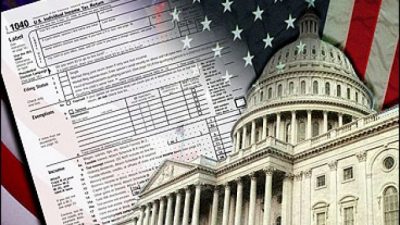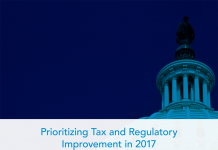
As the debate about how to reform the federal tax code continues, the ACCF presents this Special Report summarizing the finding of a new ACCF/ Ernst & Young report analyzing how two alternative reform plans will impact the cost of capital for new investment in the U.S.
Introduction
In recent years, reforming the federal tax code has been an important goal for the business community, the Obama Administration and Congress. The Administration and prominent members of Congress have advanced the objective of lowering the corporate income tax rate and financing the lower rate by broadening the tax base.
The fact that the top statutory U.S. corporate tax rate (35 percent) is higher than most of our international competitors, the complexity of the tax code and the fact that many other countries do not tax their companies’ foreign source earnings are key reasons for the interest in reform. However, the structure of the tax reform plan will have a profound impact on business incentives to invest, thus impacting job and GDP growth in the U.S. Recent Congressional tax reform proposals –such as those offered by former Senate Finance Committee Chairman Max Baucus, by Senators Ron Wyden and Dan Coats and by House Ways and Means Committee Chairman Dave Camp–share the basic architecture of the National Commission on Fiscal Responsibility (Bowles/Simpson plan) examined here while lowering income tax rates on business they also eliminate provisions important to many industries. These eliminated provisions include accelerated depreciation, the domestic production deduction (Section 199), LIFO and others.
Since over the last three decades, each $1 billion in investment in the U.S. is associated with almost 20,000 new jobs, the loss of key tax code provisions that impact the cost of capital for new investment could have profound implications for the U.S. economy. Given the slow recovery from the 2007 recession, policymakers need to understand the likely consequences for new investment of alternative tax reform plans.
ACCF Special Report ACCF/Ernst & Young Report






